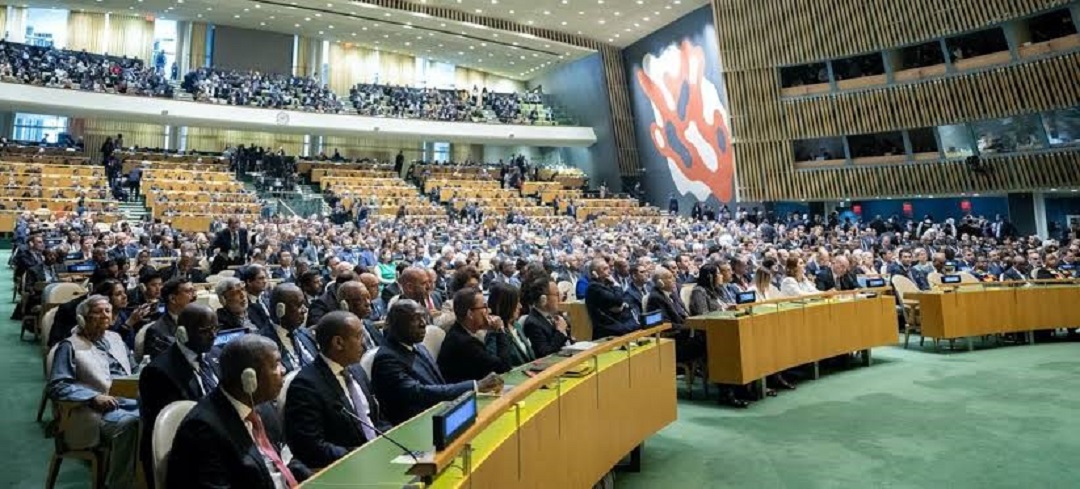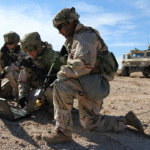UNSC DEBATES ON AFRICA: KEY RESOLUTIONS IN FOCUS

As the United Nations Security Council (UNSC) meets amid global instability, Africa’s complex security crises have dominated deliberations, reaffirming the continent’s centrality to global peace. From Sudan’s brutal civil war to the resurgence of terrorism in the Sahel and Somalia, debates through 2024 and 2025 reveal escalating humanitarian and governance challenges—over 50 million Africans displaced, economies in collapse, and climate stress deepening vulnerabilities. In a November 2025 debate on African conflicts, the UN Secretary-General’s Special Representative to the African Union, Bankole Adeoye, cautioned that “no military solution can resolve the underlying causes,” urging preventive diplomacy and stronger regional ownership. With Africa accounting for more than half of all country-specific UNSC resolutions in 2023, recent sessions have increasingly emphasized African-led solutions and deeper UN-AU collaboration.
Central to this renewed partnership is Resolution 2719 (2023), adopted unanimously in December 2023, authorizing UN funding for African Union-led peace support operations on a case-by-case basis. This long-sought reform enables reimbursements for troop and operational costs, addressing chronic shortfalls that have undermined African missions. By 2025, the resolution’s implementation became a key test of UN-AU synergy, guiding joint financing roadmaps for high-risk zones, though political will continues to lag. Delegates hailed the measure as a turning point, particularly for counter-terrorism operations in Somalia and the Sahel, where AU-led stabilization remains hampered by inconsistent international backing.
Related Article: Defence Chief Reaffirms Military’s Commitment to National Unity as Civil Forums Rally Behind AFN
Sudan’s war, ignited in April 2023 between the Sudanese Armed Forces and the Rapid Support Forces, illustrates the Council’s struggle to turn resolutions into tangible results. Resolution 2724 (2024), demanding a ceasefire and humanitarian access, was vetoed by Russia, exposing fractures within the Council. Subsequent briefings described a worsening crisis over 10 million displaced and famine looming in Darfur while AU and UN mediators pressed for using Resolution 2719 to reinforce African diplomacy. Yet alleged arms flows from external actors and weak sanctions enforcement have left civilians trapped in devastation, reflecting the Council’s paralysis in the face of competing geopolitical interests.
In Somalia, the December 2024 authorization of the AU Support and Stabilization Mission (AUSSOM) marked the first operational application of Resolution 2719. The mission, inheriting the ATMIS mandate, aims to sustain 12,000 troops through Somalia’s delayed 2026 elections. While delegates in March 2025 commended Somalia’s resilience, they warned that partial reimbursements and ad-hoc funding from the EU and bilateral partners jeopardize progress. Special Representative James Swan cautioned that unless predictable financing is secured, terrorist resurgence could unravel fragile gains across the Horn of Africa.
The Sahel, beset by extremist insurgencies and military juntas, remains another flashpoint. Resolution 2690 (2023) on counter-terrorism was extended as 2025 debates confronted the rise of the Alliance of Sahel States Burkina Faso, Mali, and Niger whose exit from ECOWAS strained regional cohesion. UNOWAS head Leonardo Simão reported over 8,000 terrorism deaths in 2024, driven by climate-linked resource conflicts and institutional collapse. While some members urged invoking Resolution 2719 for AU stabilization, others, including Russia and China, prioritized “African solutions” free of Western conditions. Funding for the Lake Chad Basin’s Multinational Joint Task Force remains below 30 percent of requirements, deepening insecurity.
In the Democratic Republic of the Congo, Resolution (2025) condemned M23’s advances and Rwanda’s alleged involvement, invoking Chapter VII enforcement powers. With MONUSCO’s drawdown in late 2024, regional forces under SADC assumed greater responsibility through the framework. Yet debates underscored the vacuum left by departing UN troops and the enduring threat posed by regional rivalries and illicit mineral trade.
Across these crises, climate change has emerged as a defining “threat multiplier.” A November 2025 UNSC briefing on climate and security linked droughts and floods to rising conflict risks, especially in the Sahel and Sudan. Integration of environmental resilience into peace operations under Resolution 2719 was welcomed, but African delegates urged faster adaptation and dedicated climate-security funding. Assistant Secretary-General Martha Ama Akyaa Pobee called for climate-inclusive peacekeeping reviews aligned with the New Agenda for Peace to bridge humanitarian and security gaps.
As 2025 concludes, UNSC deliberations on Africa increasingly pivot toward structural reform. The Ezulwini Consensus continues to demand two permanent African seats, framing the issue as a correction of historical injustice.
In an era of fractured multilateralism, Africa’s crises test the UNSC’s credibility and the world’s commitment to equitable peace. As emphasized in the 19th AU-UN consultative meeting in October 2025, only inclusive cooperation anchored in African agency and predictable support can turn resolutions into results and silence the continent’s guns for good.
King Richard Igimoh, Group Editor ALO
King Richard Igimoh, Group Editor African Leadership Organisation is an award-winning journalist, editor, and publisher with over two decades of expertise in political, defence, and international affairs reporting. As Group Editor of the African Leadership Organisation—publishers of African Leadership Magazine, African Defence & Security Magazine, and Africa Projects Magazine—he delivers incisive coverage that amplifies Africa’s voice in global security, policy, and leadership discourse. He provides frontline editorial coverage of high-profile international events, including the ALM Persons of the Year, the African Summit, and the African Business and Leadership Awards (ABLA) in London, as well as the International Forum for African and Caribbean Leadership (IFAL) in New York City during the United Nations General Assembly.
Recent Posts
Categories
- Air & Aerospace16
- Border Security15
- Civil Security4
- Civil Wars4
- Crisis5
- Cyber Security8
- Defense18
- Diplomacy19
- Entrepreneurship1
- Events5
- Global Security Watch6
- Industry8
- Land & Army8
- Leadership & Training5
- Military Aviation5
- Military History27
- Military Speeches1
- More1
- Naval & Maritime9
- Resources2
- Security12
- Special Forces1
- Systems And Technology9
- Tech6
- Uncategorized3
- UNSC1
- Veterans6
- Women in Defence9









